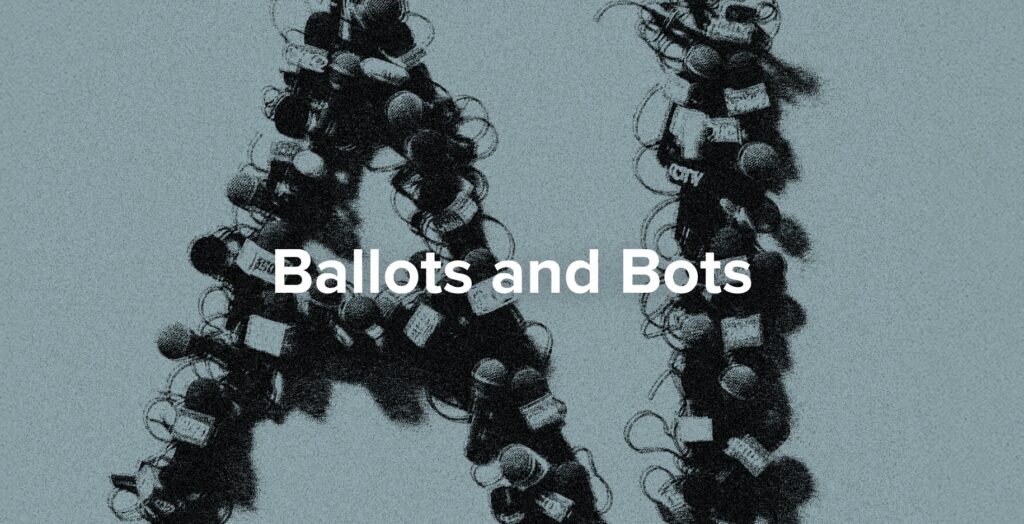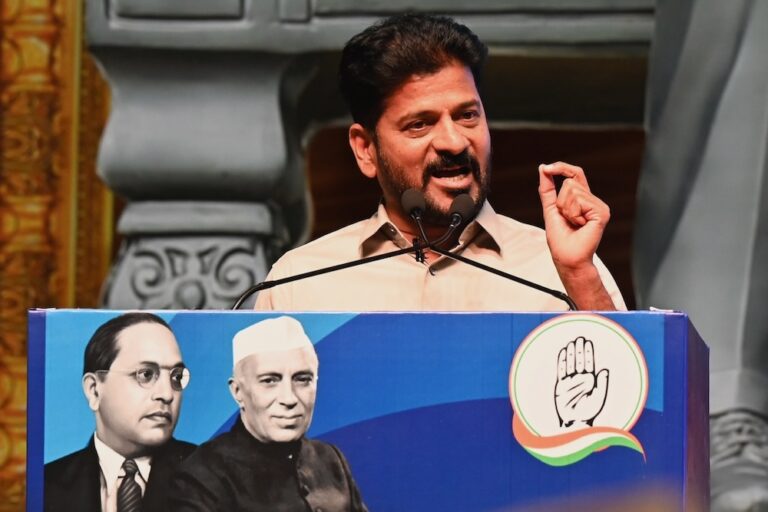The rampant use of AI tools in the 2024 Indian elections period prompted civil society groups, including IFEX member Software Freedom Law Center (SFLC.in), to launch a series of actions to engage stakeholders in countering misuse of this technology.
Around 642 million people were able to cast their votes between 19 April and 1 June 2024. Imagine the resources and amount of time deployed by political parties to deliver their campaign message and reach over half a billion people. The use of AI tools was a crucial strategy used by candidates and parties to promote their platforms. AI and other digital technologies made it possible to personalise messages, translate speeches, interact with voters across the country and in real-time, and quickly, produce visually-appealing content in various localities.
Unfortunately, this period also featured the misuse of AI tools to spread disinformation narratives. A survey during the election month of April 2024 showed that 75 percent of Indian internet users encountered deepfake content. Images and voices of dead icons and revered party leaders were turned into videos and made to appear that they were addressing the electorate. Fake videos and audio clips of famous Indians endorsing or attacking candidates were also widely shared on social media, but especially on messaging platform WhatsApp, which has more than 530 million active users in India.
We interviewed Mishi Choudhary, founder of IFEX member SFLC.in, an organisation that has been working on AI-related concerns since 2018 and has continually underscored the need for proactive and pro-innovation regulations rather than reactive measures that undermine human rights and equity.
A multi-pronged approach
SFLC.in pursued several initiatives to strategically and proactively mitigate and counter AI disinformation ahead of the elections:
- Created a page on its website in 2020 and revived it in July 2023 to monitor the use of AI tools by political parties
- Organised a two-part panel discussion on 7 March about the impact of AI in the elections and the country’s democracy
- Sent letters to the Election Commission of India (ECI) and tech companies on 28 March based on the input of experts who had taken part in the panel discussion
- Spread the word via a social media campaign about the connections between fact-checking and promoting clean governance
Sustained monitoring of AI use and misuse
The monitoring page on SFLC.in’s website would compile news reports of AI use in the lead-up to and during the elections. Each item contained a summary of the story, a link to the original publication, a brief explanation of the AI content, and how it was disseminated to the public.
Discussions with experts and stakeholders
A two-part panel titled “Ballots and Bots: Elections 2024 in a Digital World” was organised by SFLC.in on 7 March 2024 “to facilitate a nuanced discussion on the mechanisms through which misleading content is generated, disseminated, and consumed in the digital landscape.”
The panel gathered journalists, editors, AI startups, civil society, scholars, university officials, and even members of the ruling party. Choudhary cited the value of the event to better understand the rise of AI and to develop a common ground to address its intended and unintended consequences in society.
“Events bring in a new set of audience to a particular topic. In-person events have more persuasive value than emails or digital outreach. They provide an opportunity to bring together stakeholders who have decided to spend their time diving deep into the topic being discussed. Such gatherings provide an opportunity to convince them to be involved in a call of action that can represent an outcome of any event.”
Petitioning election authorities and tech companies
Following the insightful panel discussions SFLC.in drafted letters addressed to ECI and tech companies (X, Meta, Google, Snap, OpenAI) on 28 March 2024 advocating “for the implementation of stringent measures to counter the spread of manipulated media and the misuse of generative AI technologies” ahead of the general elections.
In a joint letter addressed to tech companies, they called for the implementation of “reasonable, proportionate, and effective mitigation measures tailored to the risks associated with creating and disseminating generative AI and manipulated media content, which may include access to official information on electoral processes, media literacy initiatives, and fact-checking labels.”
Choudhary reiterated the need for sustained pursuit of these demands since companies are often more interested in gaining power and profit instead of ensuring the safety of their users.
“CSOs and the people in general have to continue pushing their own elected representatives and call out the hypocrisy of tech platforms.”
Spreading the word online: trends, challenges, and practical strategies
As Choudhary noted: “The launch of the monitoring page was followed up with an intense social media campaign that educated voters and encouraged people to watch out for misinformation shared via several channels including WhatsApp. We offered simple tips to the audience to identify misinformation and be wary of forwarding messages received.”
On 2 April, SFLC.in hosted a chat space on the social media platform X (formerly Twitter) themed “Fact-Checking and Electoral Values: In Conversation With Experts”, which featured journalists, lawyers, and civil society representatives. The speakers shared trends and challenges related to fact-checking, and provided recommendations and practical strategies to ensure that voters would get accurate information amid the barrage of misleading narratives during the campaign period.
Key takeaways and next steps
We asked Choudhary about some of the lessons learned and any recommendations based on their 2024 campaign. She noted that CSOs need to continue to be ahead of the game to keep harmful AI uses in check, and shared the following:
- Accept that AI is part of our communications environment.
- National and international coalitions help in learning from each other.
- Ask for transparency in AI tools, advocate for Open Source tools.
- Always be vigilant and get better technological training for CSO members.
The use of AI continues to expand in scope and impact; SFLC.in is now preparing to launch a research paper, Harnessing Open Source in AI, which offers a guide for future initiatives and policy discussions related to AI practices.



